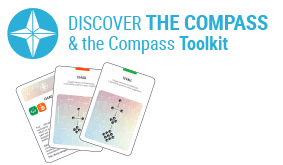Marketing distance learning courses
/We (enterprise development) have developed a distance learning course on Value Chains and are now running it with support from DELTA. We had more demand than we could respond to in this first version and do now have a waiting list for the 2009 edition.
While I think it is an interesting product, I consider that this one was not the most outstanding course compared to the other Distance Learning courses of the Centre (we could have a more intuitive web platform etc.). So I have tried to figure out what made demand so relatively strong. My preliminary answer (that I thought might be interesting for those of you that are working on distance learning platforms) is:
by Merten Sievers
– we used a well known consultant to develop the materials with us, her network was crucial for promoting the course
– we are using two well known consultants as distance tutors, that makes it more expensive but mainly brings in more participants
– we developed a marketing strategy (a 10 page document that looks a bit deeper into target audience, pricing strategies and main selling points, that is now being adapted for 2009) that has helped us to identify the main selling points (on the job training, only distance learning offer in the field, developed and managed by the consultants mentioned above etc.) and the exact market niche
– we invested a bit in “nailing” down the target audience by “plowing” the web for relevant conferences and participants lists close to our theme
So it had a lot to do with using personal networks and the web for marketing.
Strong demand obviously does not assure that we will have a good learning outcome (even though we have also invested in trying to get it right)
Obviously all of these “findings” are my own preliminary thoughts… so I’d be very happy to get a few comments on this. What works and what doesn’t in marketing distance learning courses?
Merten Sievers







